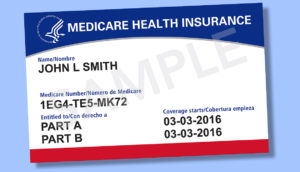 Today’s top story: Simplifying and saving during the pandemic. Also in the news: Hoping for student loan forgiveness won’t pay the bills, alternatives to Simple, and how to apply for rent assistance.
Today’s top story: Simplifying and saving during the pandemic. Also in the news: Hoping for student loan forgiveness won’t pay the bills, alternatives to Simple, and how to apply for rent assistance.
A Pandemic Shift in Finances: Simplifying and Saving
People are reassessing their priorities, finding ways to simplify life and put more money aside.
Hoping for Student Loan Forgiveness Won’t Pay the Bills
Even with payments currently paused, borrowers need a strategy that doesn’t count on forgiveness for federal loans.
Losing Your Simple Account? Some Alternatives Worth a Look
Fans of the soon-to-close app might like options including Radius Bank, Varo and Personal Capital, among others.
How to Apply for Emergency Rent Assistance
How to take advantage of the newly-released plan.
 Today’s top story: Jump start your credit with a free credit score. Also in the news: A new episode of the Smart Money podcast on COVID scams and small money goals, why you shouldn’t bank on student loan forgiveness, and how to apply for the second round of PPP loans for small businesses.
Today’s top story: Jump start your credit with a free credit score. Also in the news: A new episode of the Smart Money podcast on COVID scams and small money goals, why you shouldn’t bank on student loan forgiveness, and how to apply for the second round of PPP loans for small businesses. Today’s top story: How to nail a no-spend month. Also in the news: New credit card benefits we’d love to see for 2021, the popular online banking service Simple is shutting down, and TurboTax customers will still get their stimulus payment.
Today’s top story: How to nail a no-spend month. Also in the news: New credit card benefits we’d love to see for 2021, the popular online banking service Simple is shutting down, and TurboTax customers will still get their stimulus payment. Today’s top story: Start 2021 off strong with these smart money moves. Also in the news: What COVID-related credit card help is available in 2021, how businesses can apply for a second PPP loan, and Medicare Advantage open enrollment begins.
Today’s top story: Start 2021 off strong with these smart money moves. Also in the news: What COVID-related credit card help is available in 2021, how businesses can apply for a second PPP loan, and Medicare Advantage open enrollment begins.  Today’s top story: 5 credit card trends to watch in 2021. Also in the news: 7 smart ways to cut car costs in 2021, vague financial resolutions to avoid, and 5 ways young drivers can save on car insurance.
Today’s top story: 5 credit card trends to watch in 2021. Also in the news: 7 smart ways to cut car costs in 2021, vague financial resolutions to avoid, and 5 ways young drivers can save on car insurance.  Today’s top story: To raise financially savvy kids, give money lessons a reboot. Also in the news: A new episode of the Smart Money podcast on 2021 money goals, how to discuss family finances in a crisis, and giving your wallet a good cleaning.
Today’s top story: To raise financially savvy kids, give money lessons a reboot. Also in the news: A new episode of the Smart Money podcast on 2021 money goals, how to discuss family finances in a crisis, and giving your wallet a good cleaning.